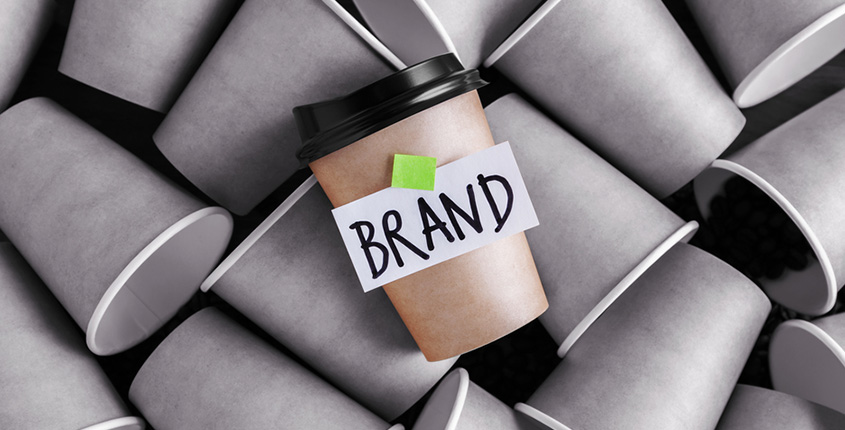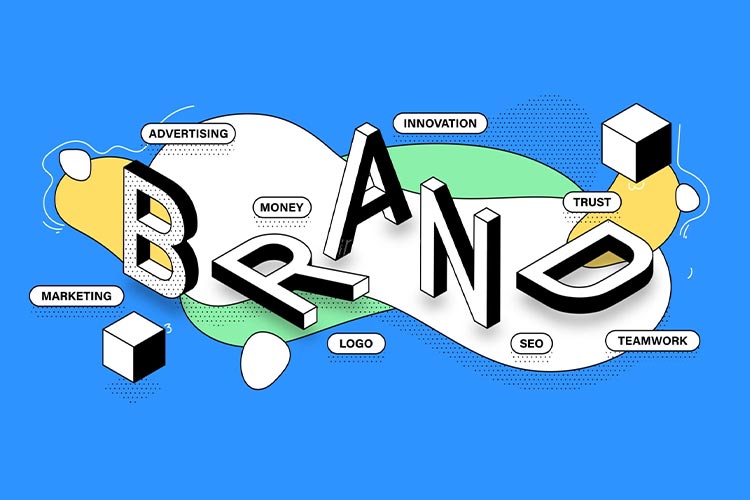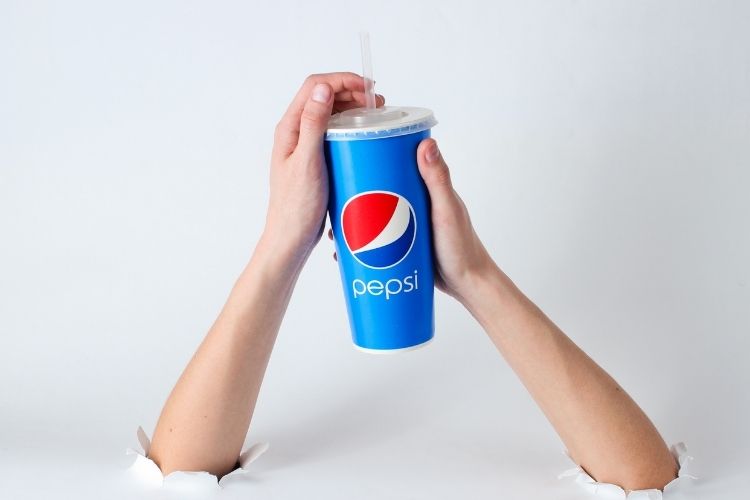Branding is one of the ambiguous topics in the business talk that can not explain into one definition. It varies from one to another practitioner depends on the context.
That is why we bring for you some of the best definitions from the tycoons of the business field. So, let’s get started.
What Is Branding?
According to Cheryl Burgess, Blue Focus Marketing:
A brand is a reason to choose.
According to Jay Baer, Author of The New Revolution:
Branding is the art of aligning what you want people to think about your company with what people actually do think about your company. And vice-versa.
According to Mark Cuban, Owner of Dallas Mavericks:
Focus on building the best possible business. If you are great, people will notice and opportunities will appear.
According to Steve Jobs, Co-Founder of Apple:
Design is not just what it looks like and feels like. Design is how it works.
According to Warren Buffet, CEO of Berkshire Hathaway:
Your premium brand had better be delivering something special, or it’s not going to get the business.
These are the definitions of some of the business tycoons but I will sum up about branding by the words of Jeff Bezos, Founder of Amazon.com which is nearly perfect to me that:
Your brand is what other people say about you when you’re not in the room.
In order to make it more clear we are going to answer your most frequently asked questions that will help you to understand more.
- What are branding examples?
- What is personal branding?
- What is brand marketing?
- Why branding is important?
- What are the steps of branding?
- What are the key elements of branding?
- Why do you need to hire a professional agency to build your brand?
- How much does it cost to have a professional branding for a new company?
What Is Branding and What Are Branding Example?
You can think a brand as the concept or vision people have in their thoughts when considering about particular products, services and activities of a firm, both in a practical way (e.g. “the Tea is light-weight and aromatic“) and emotional way (e.g. “the Tea makes you feel energetic and fresh“).
It is not just the physical traits that build a brand but also the emotions that customers develop towards the firm or its product.
This blend of physical and emotional signs is recalled when coming into contact with a certain name, the logo, or the visual identity.
A product can be simply imitated by other opponents in a market, but a brand will always be different.
For example, L’Oréal and Coty are the famous beauty brands that cover almost similar lines of cosmetics however for some reason, some people feel more connected to L’Oréal, others feel more connected with Coty.
Let’s explain this again with our soap example.
The product soap is sold in the market, but in order to influence people to buy a specific soap, companies produced different soap brands, such as Dove, Dial, Irish Spring or Caress. And each of these brands gives a unique meaning to the product soap:
- Dial makes you feel glad
- Iris Spring keeps you fresh
- Dove gives you the real beauty
And so on.
So, you can say a brand is a feeling of a person about a particular product or company. Each person develops his or her own perception of it, and some brands improve or reduce in reputation because of how customers perceive them.
But there is another variety of branding that can be evenly important for your business name, personal brand.
So, you can say a brand is a feeling of a person about a particular product or company. Each person develops his or her own perception of it, and some brands improve or reduce in reputation because of how customers perceive them.
But there is another variety of branding that can be evenly important for your business name, personal brand.
What Is Personal Branding?
Personal branding is not for someone who maintains a business. Personal branding is also necessary for any leader, influencer, or person who desires to share their motivational story with the world.
Many people connected personal branding with a name and logo, but there is so much more to it.
Personal branding is the practice of marketing people and their careers as brands. It is an ongoing process of developing and maintaining a reputation and impression of an individual, group, or organization. Whereas some self-help practices focus on self-improvement, personal branding defines success as a form of self-packaging.
Your personal brand is how you raise yourself. It is an unusual sequence of talent, experience, and character that you want your fan to witness. It is the telling of your story, and the impact people get from your online reputation.
Let’s take an example of Oprah Winfrey.
She is one of the few personalities in the world who is recognized by almost everyone from mentioning her first name.
Oprah surely knows her personal branding well and has succeeded to gain on it in ways that few others have achieved. This has supported her to live her desired life.
There is another kind of branding that is least similar to personal branding and that is brand marketing. In order to know the idea behind this, let dive into its details.
What Is Brand Marketing?
Brand marketing is the ideas and strategy to make a great influential brand. The idea of brand marketing is to spend on marketing as an investment in developing a brand’s worth and in turn the company’s value. Investment-based tactics make brand marketing distinctive than other marketing tactics such as direct response marketing.
Brand marketing uniformly grows a company’s value.
At this point, we got some clear picture of branding but still, it is needed to know the reason why it is important and what sort of benefits it provides to the company that it becomes so essential.
Why Branding Is important?
Branding is important to a business because of the complete impression it makes on your company. Branding can improve how people perceive your brand, it can inspire new business and grow brand awareness. Below are the few reasons why branding is important.
Branding Gets Recognition
The most essential reason branding is important to a business is because it increases business recognition and becomes known to the consumers
Branding Increases Business Value
Branding is important when attempting to make future business, and a firmly established brand can develop a business’ value by giving the company more support in the industry.
Branding Generates Customers Trust
Strong branding usually means there is a positive impact of the company amongst customers, and they are able to do business with you because of the popularity and expected dependability of using a name they can trust.
After knowing its importance, it will become necessary to know how branding can be done, so lets us reveal some of its steps and key elements that will guide you in your business.
What Are The Steps And Key Elements Of Branding?
Here are few major steps and key elements to building a successful brand.
Brand Impact:
It will be easier to understand if we mention Jeff Bezos quote here:
“Your brand is what other people say about you when you’re not in the room.”
In spite of all your best efforts as a company to make your brand name to a particular form, it is important to know that eventually, it is customers who determine how your brand is regarded.
Brand perception is the purpose of the brand that people grow in their minds. It also tells what they demand from the brand.
Brand Identity:
The brand, of course, is a simple recognizable name that instantly lets the people know about a specific organization that produces certain products or provides certain assistance. Brand identity is the way people perceive the brand. It may be through the logo or other associated visuals. The unique logo of Nike is very simple, but is easily recognizable all around the world along with its punchline, “Just Do It“.
Brand Positioning:
Positioning is the way of placing a product in the market. It basically explains what sections of the market it is targeting. For example, Virginia Slims is a cigarette targeted at women. Basic components in all cigarettes are the same but this one has been positioned to fascinate women by presenting it slimmer in shape and making the packaging more attractive.
Be Consistent:
Remaining steady across your branding is necessary to create a strong brand perception. The purpose here is to increase trust. Your customers must no longer perceive your brand as a promise but as a truth. Consistency is usually the most difficult part, but the one with the biggest rewards. But This could, in turn, can decrease brand reliability and recognition for your business in the future.
Brand Personality:
Brand personality is a certain emotion attached to the brand or personal qualities that we connect with a particular brand. For example, Pepsi or Coca-Cola have the almost same color and even taste but some are more emotionally attached towards Pepsi and some found Coca-Cola better.
Brand Equity:
Brand equity is the worth of a brand. It may include a real economic value such as market share and profits as well as intangible aspects such as the strategic gains of the brand. For example, Apple is a superior technology brand and people see it is a premium, cutting edge manufacturer of quality products.
Brand Differentiation:
Differentiation, as the word implies is how a brand stands out in the market. For example, Dell Computers lets people take their parts and assemble their own system, thus keeping it distinct from others who just trade readymade devices at the shop with no scope for customization.
Brand Communication:
Brand communication is the message it gives through different sources like hoardings, punchlines, brochures, and adverts. If the brand has to improve, it must be able to simply communicate its essence advantages to the consumers.
Brand Gap:
The brand gap is the contrast between what a brand guarantees to give in its ideas and what it actually produces. The gap should not be very large. A strong brand must be able to produce what it guarantees. No amount of publicity or content marketing attempts can save a bad product.
Brand extension:
Brand extension is basically the concept of going ahead of one’s roots and searching newer fields. For example, Google began their work as a search engine. But now it gives many other services including emails and mobile operating systems. This is how it has enlarged the brand but it must be completed in a way so that the actual services complement the newer initiatives.
Why Do You Need To Hire A Professional Agency To Build Your Brand?
A new business owner requires a basic understanding and awareness to develop their brand on their own, which is why a branding agency is required. The following are a few reasons why you need to hire a branding agency:
Because Of Development:
The agency will be ready to help you discover what exactly you want to communicate with your branding and then help you to develop a strategy to get you where you dream to be.
To Target Market:
A branding agency will analyze your business from all aspects when trying to build its identity. In many circumstances, these experts will look at what your rival is doing in order to get a transparent look at what you are up to face.
To Know Your Resources:
The branding agency will be capable of letting you know what methods are the most suitable for you and your business. The more methods you have at your disposal process; the more accessible it will be for you to capture your brand recognition.
To Develop a Marketing Strategy:
Once you have done all the essential parts of your branding, you will be able to produce the most reliable marketing strategy. Utilizing content, social media and video are necessary if you need to communicate with the larger public. Trying to manage all of your marketing works alone will lead you towards a number of different problems. Hiring the right experts is a vital part of reaching the level of success you are looking for.
How Much Does It Cost To Have A Professional Branding For A New Company?
Branding budgets depend on whether you are creating a brand that will stand only in front of a few competitors in a small geographic region or a brand that tries to stand firm in front of major competitors in the global marketplace. And budgets range depending on whether you want to grasp your market through digital means and social media or whether you want to spend in conventional media and marketing ways.
Here is the budget range provided to you, so you can hire professional help according to your demand.
| Task Name |
low-End Fee |
High-End Fee |
||
|---|---|---|---|---|
| Brand name development | ||||
| Brand name development | $10,000 | $75,000 | ||
| Brandmark (logo) creation | ||||
| Brand name development | $3,500 | $150,000 | ||
| Core brand presentations (website and brand marketing materials) | ||||
| Core brand presentations (website and brand marketing materials) | $10,000 | $250,000+ | ||
| Advertising | ||||
| Advertising | $10,000 | Millions annually | ||
| SEO (website search-engine optimization | ||||
| SEO (website search-engine optimization | $1,000 monthly | Thousands monthly | ||
| Social media | ||||
| Social media | Your time | Hundreds of thousands annually | ||
| Signage, vehicles, packaging | ||||
| Signage, vehicles, packaging | $20,000 | $250,000+ annually | ||
Conclusion: What Is Branding?
It is the process that involves in developing an unusual name and perception for a product in the customers mind, through advertising strategy with a consistency. Branding targets to create a vital and unique presence in the market that fascinates and brings loyal customers.
We hope this research clears your concept of branding, and will help you in your business. In the end I would like to end my research with the quote of Sir Richard Branson
“Branding demands commitment; commitment to continual reinvention; striking chords with people to stir their emotions; and commitment to imagination. It is easy to be cynical about such things, much harder to be successful.”
Haris Siddique
Head of Digital Operation and Business Development at Artimization
 Make Custom Package
Make Custom Package




No Comments